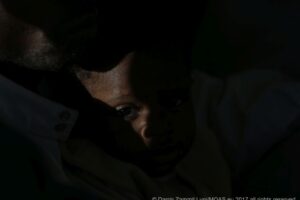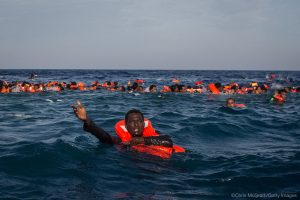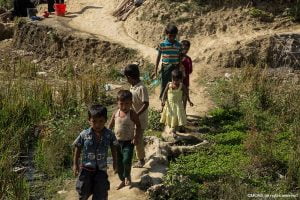It is a sunny morning and I am on a tour of Rohingya settlements in Bangladesh when I happen to see something that deeply moves me for its beauty and simplicity. I am in a rice field soon after harvest, and the landscape around me is bare and yellow. I am feeling the hard soil under my feet, when all of a sudden I see a group of kids, probably aged between six and 10, playing football. Most of them have no shoes or clothes; the goalkeeper is standing there without sports kit or football boots or goalkeeper’s gloves. He is completely naked, but cloaked in his passion, his happiness to be playing with an old, almost deflated ball.
They scream and laugh, like every other child at play, as they dream of becoming famous, invincible footballers. For a moment I am able to forget where I am and why; for a moment the appalling humanitarian crisis triggered by the exodus of 655,500 Rohingya from Myanmar to Bangladesh fades away. We could be anywhere – in a park, on a football pitch with their coach, or even in school during a PE lesson.
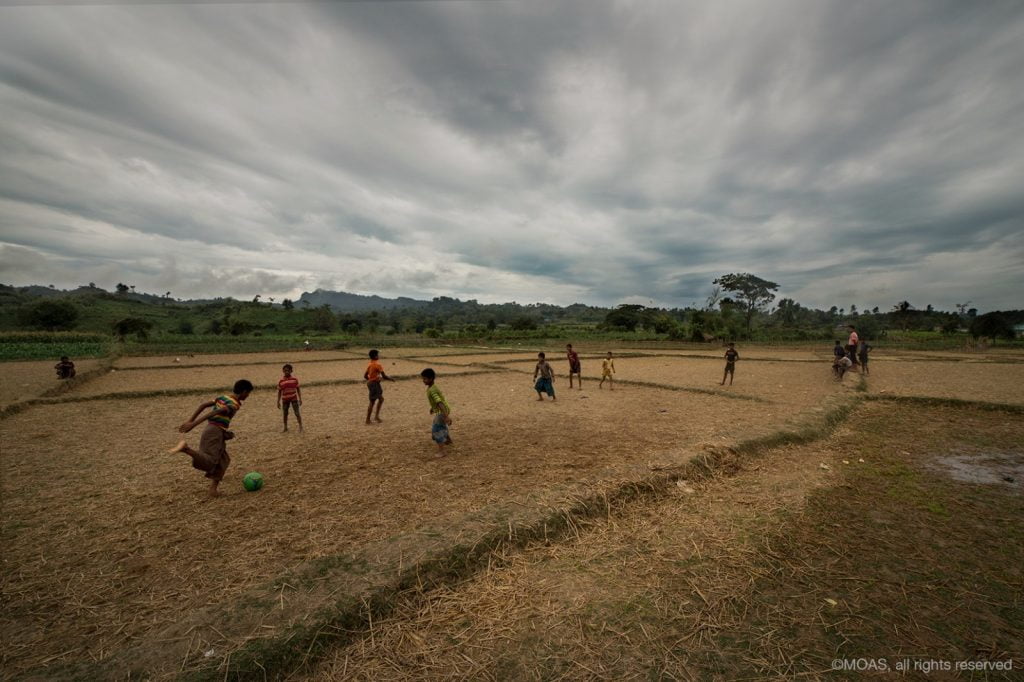
But we are in a Rohingya refugee camp, with children who have recently survived violence and abuse on a scale that the UN described as “a textbook example of ethnical cleansing”. Nevertheless, these kids are laughing and playing, as if they could forget all the bad memories of their horrific journeys by running to kick the ball. They have no clothes or shoes, their feet beat on the hard soil, but they are happy with a light-heartedness which is typical of children and fades with the adult age.
In a place where everything is missing, where finding an aspirin can be difficult, where the risk of communicable diseases is a real threat, a ball becomes a precious toy, a reason to smile and a way to exercise a child’s imagination. Imagination is at the heart of a second game I witness: two little sisters holding hands and collecting colourful plastic caps. They laugh, competing to see who can collect more caps, reminding me of all the old-fashioned games which seem so obsolete compared to videogames and technological toys. Nowadays, fewer and fewer children play outdoors; the majority spend their free time with tablets or smartphones.
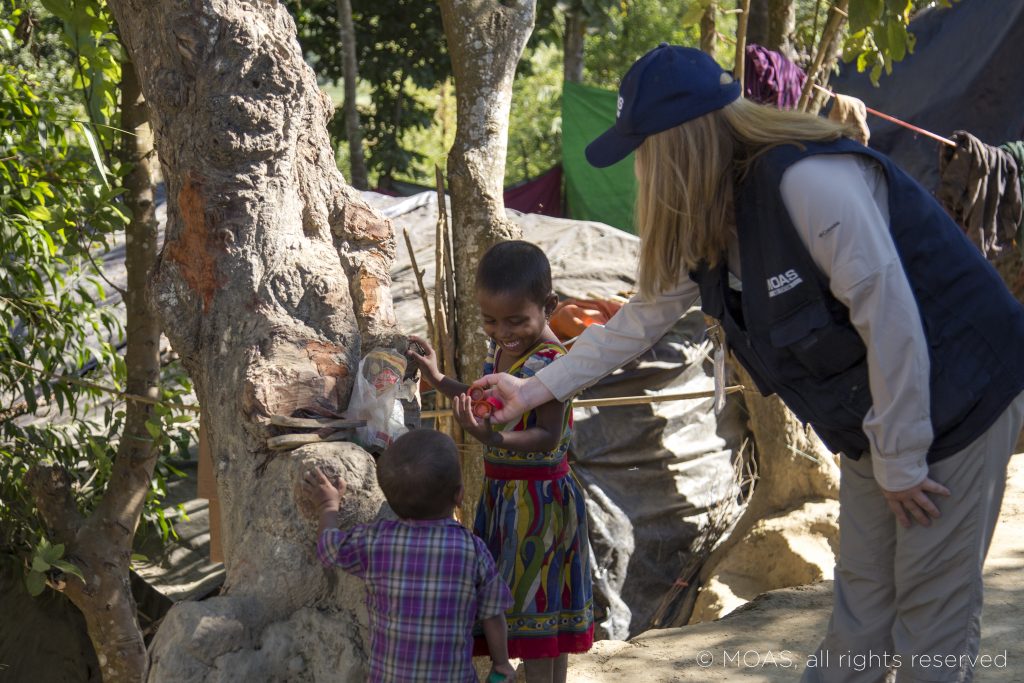
The smiles and innocence of children are the greatest reward for me and the MOAS team, and the strongest encouragement to continue our medical and humanitarian mission. Since we arrived in Southeast Asia last September, we have delivered 40 tons of food and humanitarian aid to the Bangladeshi government, in an effort to alleviate the strain on national resources created by the massive influx of people in need. Since we started our new mission, we have focused our energies, skills and resources on providing free, quality medical assistance to Rohingya refugees who survived violence in Myanmar. Moreover, we provide emergency care to their local Bangladeshi host communities, which continue to show great solidarity to their new Rohingya brothers and sisters.
I am also extremely happy to see that our MOAS Aid Stations – medical units equipped with a free pharmacy – have become a gathering and resting place for patients. When the MOAS team is tired or discouraged, we think about the kids who miraculously survived horrific massacres and are still able to laugh, play and use their imaginations to overcome a lack of clothing, shoes, toys and expensive technological devices.
We are proud to keep their hope alive and to preserve the precious gift of childhood for a community in need of everything.
This article was originally published by the Italian magazine VITA
Please click here to read the Italian version

